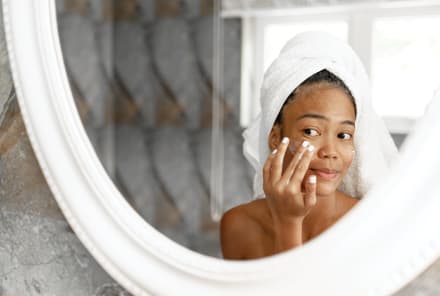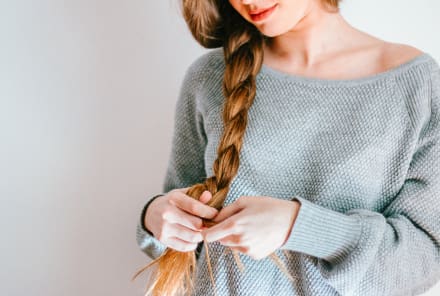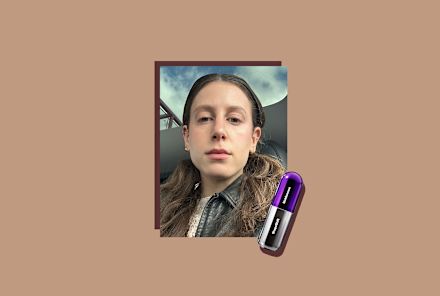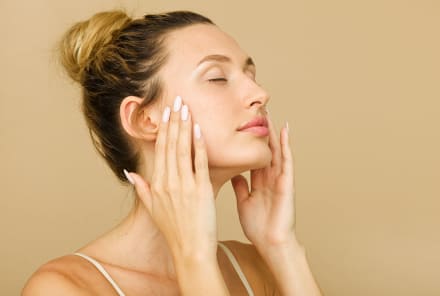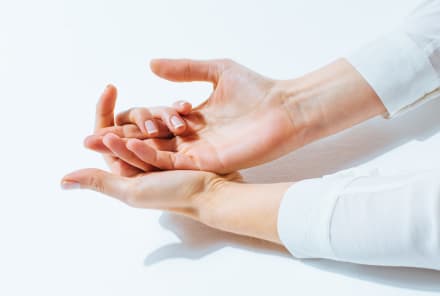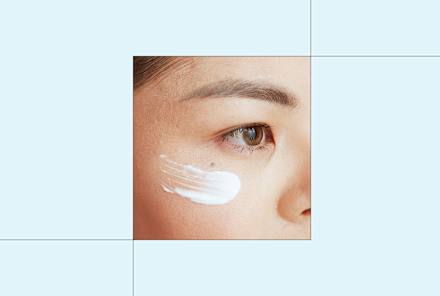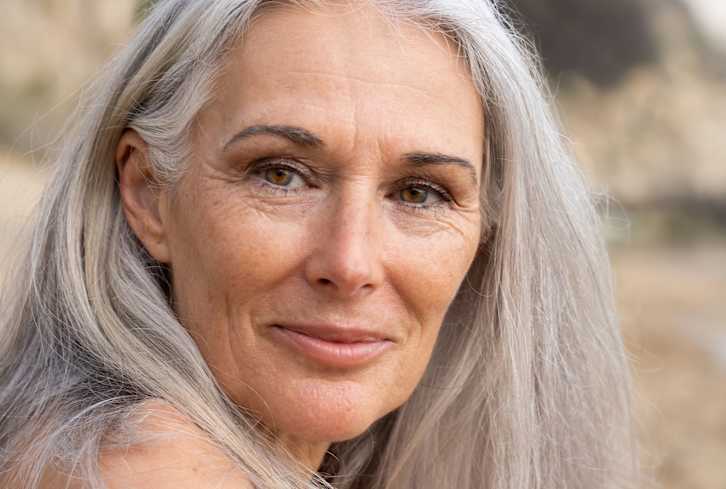Advertisement
These Sneaky Ingredients Can Actually Make Lip Sunburns Worse

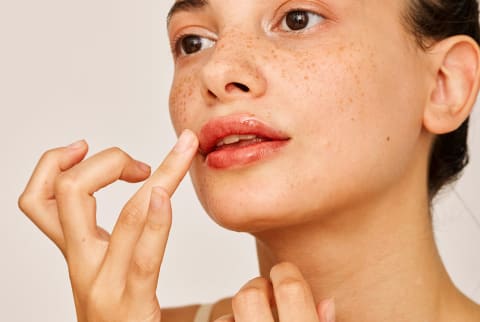
No matter how much SPF you layer on your body and your face, you might be missing one extremely delicate, sunburn-susceptible area: the lips. That's right, your lips can become sunburned quite easily, and if you've ever experienced one yourself, we likely don't have to explain just how uncomfortable and inconvenient it is when this happens. (Read: flakes, tenderness, and irritation.) For this reason, finding an SPF lip balm is key, especially during the summertime—here's a list of our top picks.
Still, if you forget to apply a sunscreen lip balm, or simply don't reapply often enough (which happens to the best of us), you may wind up with a pesky lip sunburn. Meaning, you should be extra careful when choosing what lip products to layer on after the fact. There are a few ingredients to avoid, and we're going to gloss over them below.
Which sneaky ingredients make lip sunburns worse.
You might be surprised to learn that many lip products contain exfoliating ingredients, even if the package doesn't specifically spell it out. It's great for the lips to receive gentle exfoliation every once in a while, be it from a lip scrub or chemical buffers. That being said, there's a time and place for that, and it's certainly not while your lips are burned and raw. Just as you wouldn't want to go in with a harsh scrub when your body is sunburned, you want to take the same care of your lips.
As for those plumping products? You should probably steer clear of those for now, too, as plumping agents can irritate the lips (that sting is what creates the temporary swollen, plump appearance). Here are a few specific ingredients to keep an eye out for:
- Salicylic acid
- Any sort of granules, even if they're tiny
- Glycolic acid
- Peppermint oil
- Cinnamon or cayenne pepper oil
You also might want to avoid highly occlusive jelly balms at this point. While we love occlusives for trapping in moisture, they're not the best to apply on fresh, angry burns. You see, the occlusive oils can actually trap the heat in your skin. "Just as you would not want an occlusive on a stovetop burn, it is not recommended after a sunburn," agrees board-certified dermatologist Ava Shamban, M.D., founder of Ava M.D. Dermatology, the SkinFive, and The Box by Dr. Ava. "It will, in fact, act as a trap, keep in the heat, and can cause more pain or damage." That's not to say you must avoid oils altogether—just beware of occlusive-only wax or jelly balms that merely coat the surface.
So what should you look for instead? It's best to opt for something that nourishes the lip skin and helps restore the moisture barrier. Soothing ingredients like shea butter, hyaluronic acid (also known as sodium hyaluronate, which has a smaller molecular weight), and moringa seed oil all help the lips heal. And don't worry—hyaluronic acid is a powerful plumping agent as well, so you won't be missing out on that juicy, full look while your lips are healing.
The takeaway.
Sunburns of any kind are no fun, but lip sunburns can be especially uncomfortable. It's important to avoid any irritating ingredients while your lips heal, so tuck away those lip scrubs and plumping glosses until the skin fully heals. In the meantime, look for balms with hydrating, nourishing ingredients only. If you don't have a go-to hydrating balm on hand, check out this list for 15 of our favorite clean and natural options.
